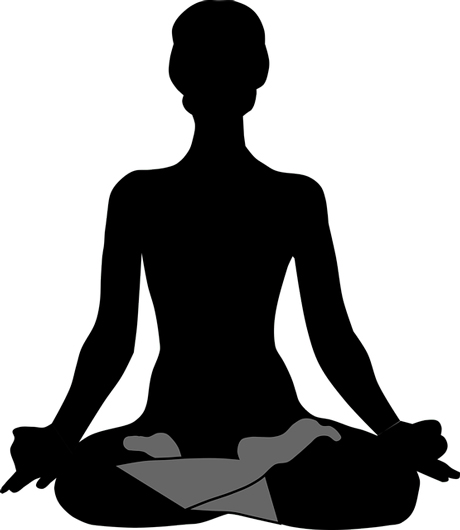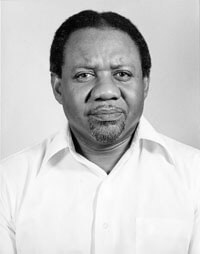December 4, 2019 issue
Authors' & Writers' Corner

At the end of my shift, I yawned my way home on the train and bus ride without my cell phone, which I may have forgotten at the apartment when I left for work.
When I arrived home, I made a cup of coffee and watched TV. I was scared to go to bed for fear of falling asleep and having another bad dream. I flipped through the channels without finding anything that held my interest. I sensed another presence in the apartment that made the hairs on the back of my neck stand on end.

After a search under the bed and in every pocket, I came up empty handed. Maybe I dropped it on my way to work. I would have to call work from a pay phone and ask my boss for a sick day off.
I resigned myself to my situation and settled in for an all-night TV marathon. At the stroke of midnight, every hair on my body stood on end when I felt a cold breath on the back of my neck and a whispered voice in my ear.
“We’ve come to take you, Charlie.” A strange odor accompanied the words.
I jumped up with my heart in my throat before I realized that I had fallen asleep on the sofa. My glance at the clock confirmed the midnight hour. I grabbed my cold cup of coffee and gulped it down. I rubbed my eyes which felt like sandpaper and watered from the sting.
Alone in an apartment with strange occurrences and no phone scared me to death. I felt isolated and stalked by terror. With my blanket wrapped around me, I made another strong cup of coffee and vowed to stand until sunrise to avoid falling asleep again. I leaned against a wall and locked my knees in place. I turned the clock away from view to avoid the temptation of tracking the time.
When my tired legs cried out in agony, I slowly slid downward against the wall to a sitting position on the floor. I hugged my legs and rested my chin on my knees.
“Your time is near, Charlie.” The whispered cold breath and odor jerked me awake. My legs went numb and I felt a tightness in my chest. The horror of my situation was giving me a heart attack and I had no means of communicating with the outside world. Emergency medical treatment was beyond my reach. I faced death scared and alone.
When objects in the room started to become invisible and I stopped hearing the TV, I realized that my five senses were under attack from some unknown source.
When strange people started to enter my vision and the hum of their voices replaced the physical sounds I no longer heard, I realized that I was gradually fading out of my physical world and entering a virtual realm.
“Your time of reckoning has arrived, Charlie.” I heard the voice but could not see the speaker. A blue man glowed to the right and a red one stood on the left at the far corners of the room.
“Let the judgement begin.” A clear glow appeared above and centered between the two men. A parade of people materialized in the center of the room and transitioned to the right and left after the clear glow’s voice addressed each individual by name. I recognized most of them but there were others whom I did not recall.
“How did Charlie’s existence on Earth impact your life?” The clear glow vibrated with each word spoken.
Without a verbal response, each person glided forward and either moved to the left to stand by the red man or right to take up a position by the blue one.
Tears filled my eyes when I saw an old beggar float toward the blue man. He did not need his useless legs to carry him. His wife followed in a bedridden horizontal position. The daily alms I gave him every morning had helped to provide sustenance for his family. The kids that I had bullied in the schoolyard floated to the red man.
The Universal Court of Justice was in session and, without the owners’ awareness, both deceased and living souls of all creatures were called to testify by my interaction with them throughout my journey on Earth. The ones that made false accusations or incorrect assessments of me stood under the clear glow to expose their wrongdoings against me. Their appearance at my trial would become evidence against them when their day of reckoning arrives. I was sure that I had stood in the same spot many times before.
After the parade of souls came to an end, my body keeled over to the side and lay lifeless on the ground. Freed of my body’s burden, my liberated soul floated toward the warmth and comfort of the clear glowing light. The majority of souls standing with the blue man had decided my fate in the afterlife.
Caribbean writing

By Romeo Kaseram
Neville Augustus Dawes was born in Warri, Nigeria on June 16, 1926 to Jamaican parents. Father Augustus was a Baptist missionary and teacher from Sturge Town, in the parish of St Ann, and mother was Laura. Dawes was three years old when the family left Nigeria to return to Jamaica and the rural Sturge Town, where he grew up. Edward Baugh, writing in Fifty Caribbean Writers: A Bibliographical Critical Sourcebook, tells us the young Dawes grew to love the hilly terrain of his hometown, which he later recalls in two of his novels.
A young Dawes prove scholarly, receiving a scholarship in 1938 to study at Jamaica College, which as Baugh notes, was at the time an elitist school for boys. Following graduation from Jamaica College, Dawes taught at the Calabar High School. He left Jamaica for Oriel College, at Oxford University in the UK in 1948, where he read for an English degree, and finished with a Master of Arts degree in English. He returned to Jamaica in 1953 to Calabar where, as its Old Boys’ Association’s website notes, he taught English, Drama, and History.
Dawes was on the move in 1955, Baugh telling us this time he left Jamaica to take up a teaching position at the Kumasi Institute of Technology in Ghana. Later, he moved to the College of Administration in Achimota, a Ghanaian town in the Accra Metropolitan District. He was a lecturer from 1960-1970, and later, a senior lecturer in English at the University of Ghana in Legon. Dawes’ political consciousness are among the reasons he gave for returning to Africa, which Baugh cites from an unpublished interview given to Daryl Cumber Dance in 1979. As he told Dance, he felt a need to be on site in Africa to “see what was happening” in a country “determined to be independent of British colonialism”. While in Africa, Dawes became a leading figure in the cultural wing of the African Liberation Movement, Baugh notes; also, he was an editor of the journal of Ghana Society of Writers, Okyeame.
Dawes returned to the Caribbean in the academic year 1963-1964 to the Faculty of Arts at the University of Guyana, where he was a visiting professor of English and Dean of Arts. He was back in Jamaica in 1970, invited by the Jamaican government to the post of deputy director at the Institute of Jamaica. According to Baugh, the Institute was an “umbrella” organisation administering varying government cultural programs; in 1973 he became its executive director, which he held until 1981. Following his executive director role at the Institute of Jamaica in 1981, Dawes focused on writing book reviews and feature articles for the Sunday Gleaner.
Baugh notes the lasting impact of Dawes’s Ghanaian lectures on Caribbean literature for its later significance to the development of literary criticism in the region. The lectures were delivered in 1975 to the Institute of African Studies at the University of Ghana, and was published in 1977 as the seminal monograph, Prolegomena to Caribbean Literature. Among his other texts are Poems – In Sepia (1958), which is now difficult to locate, Dawes himself indicating to Dance even he did not possess a copy; The Last Enchantment (1960); republished by Peepal Tree Press, (2009); Interim (1978); and, Fugue and Other Writings (2012).
Dawes’ early writing career saw output of political poetry, mostly in Africa, published in Poems – Sepia. However, Baugh tells us 19 of his early poems have survived, having been broadcast on the British Broadcasting Corporation’s Caribbean Voices between 1948-1958, along with seven short stories; also, some of his early writings appeared in periodicals and anthologies. Baugh also notes that while Dawes’ early writings tended to poetry, he “gradually turned more and more to prose”. However, according to his son, Kwame Sunu Dawes, speaking at the Institute of Jamaica in 2009, and reported by the Jamaica Gleaner, while Dawes turned away from poetry to prose, listening to The Last Enchantment being read reveals his father “had not abandoned poetry”; that, “He had simply shifted the superficial framing of his verse.”
Baugh notes in his exploration of Dawe’s two published novels, The Last Enchantment, and Interim, that while both are 18 years apart, there are similarities “in their concerns, as well as appreciable parallels in tone and point of view”. Baugh adds, “Both look critically at the politics of a newly self-governing or independent ex-colony, Jamaica. Both see the situation in terms of a conflict of class interests, complicated or deepened by conflicts of colour. Both explore, rather despairingly, the likelihood of a revolutionary solution.”
Eugene Benson, writing in The Encyclopedia of Post-Colonial Literatures in English, tells us both novels are set in the hill country surrounding Sturge Town, and are concerned with Jamaica politics – The Last Enchantment with Jamaica on the eve of Independence, with The Interim focusing on post-independence. In addition, Benson notes both novels “explore issues of race, class and colour and the possibility of a revolutionary solution”; that, “[in] each the protagonist is a black peasant boy exposed to an elitist education”, which is rejected “in favour of socialism and nationalism”.
Dawes died on May 13, 1984, in Mandeville, Jamaica, following an accidental fall, after recently taking up a post at the town’s high school. At the time of his death, Baugh tells us Dawes was considering an invitation to return to the University of Ghana as a professor of English. He was celebrated at his funeral by Ghanaian poet, Kofi Awoonor, who as Baugh reports, “recalled with appreciation the encouragement and critical advice which he and other young Ghanaian writers had received from Dawes”.
Also, the late Rex Nettleford, Jamaican scholar, social critic, choreographer, and Vice-Chancellor at the University of the West Indies, and who was also chairman of the Council at the Institute of Jamaica during Dawes’ tenure as its executive director, spoke highly of his colleague during his tribute, saying, “[Dawes] was crucial to the restructuring of the Institute… during the Seventies and contributed not a little in winning the international respect Jamaica enjoys for its efforts in the fields of cultural administration and cultural development.”
Sources for this exploration: Wikipedia, Fifty Caribbean Writers, The Encyclopedia of Post-Colonial Literatures in English, Peepal Tree Press, and the Jamaican Gleaner.